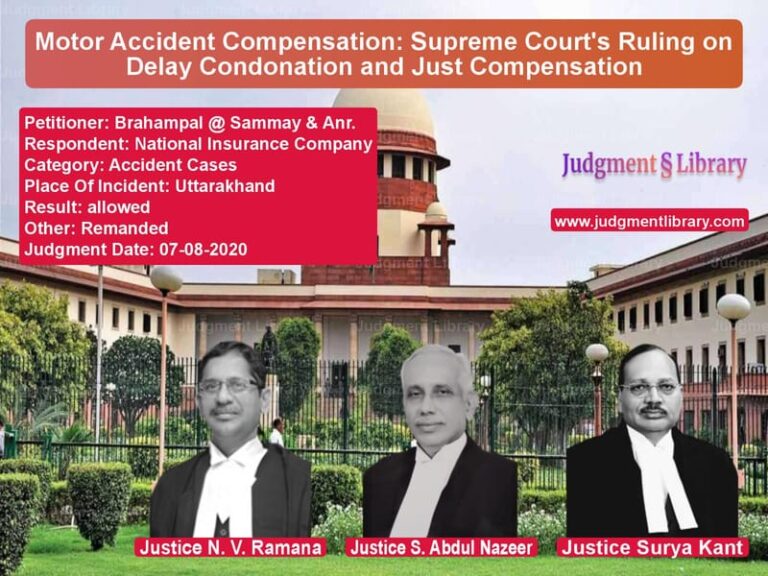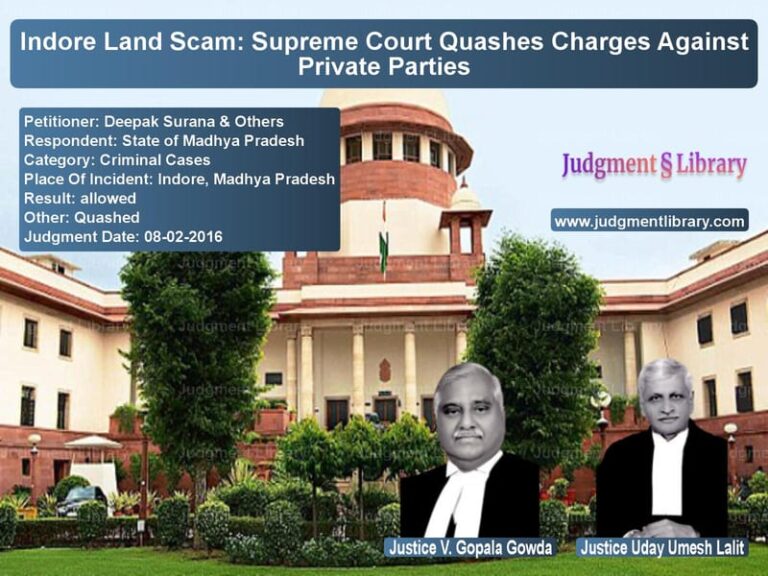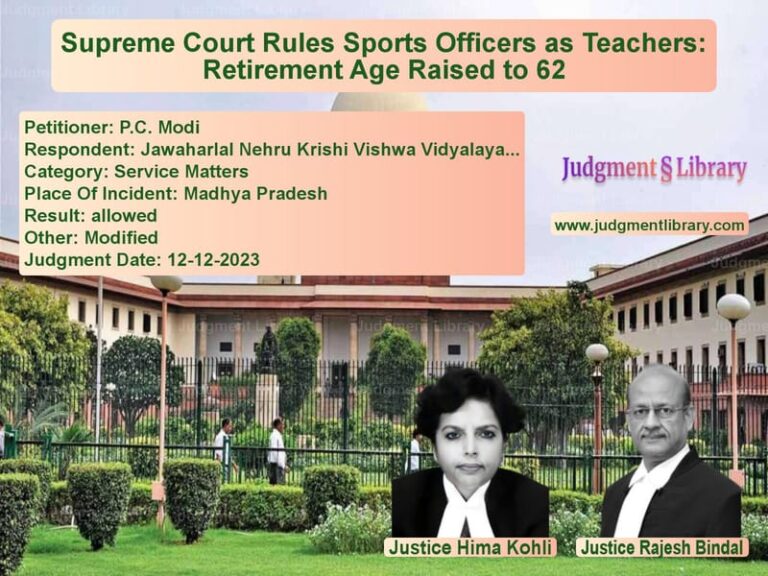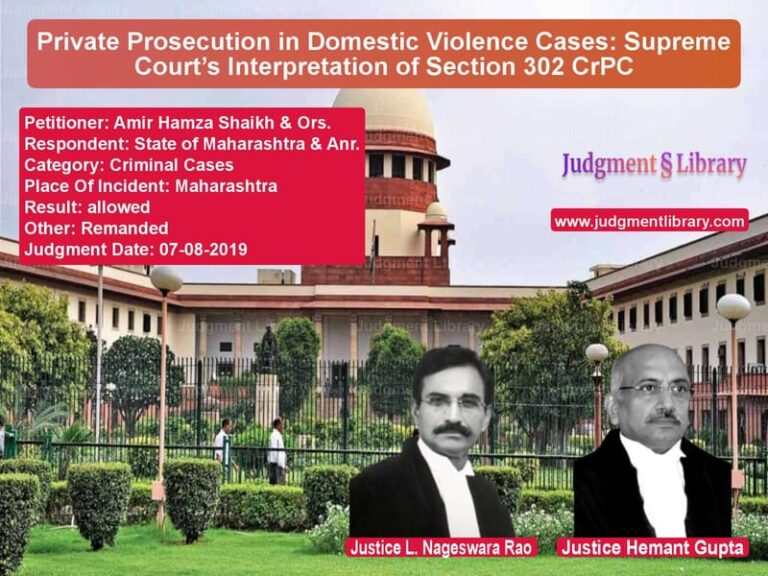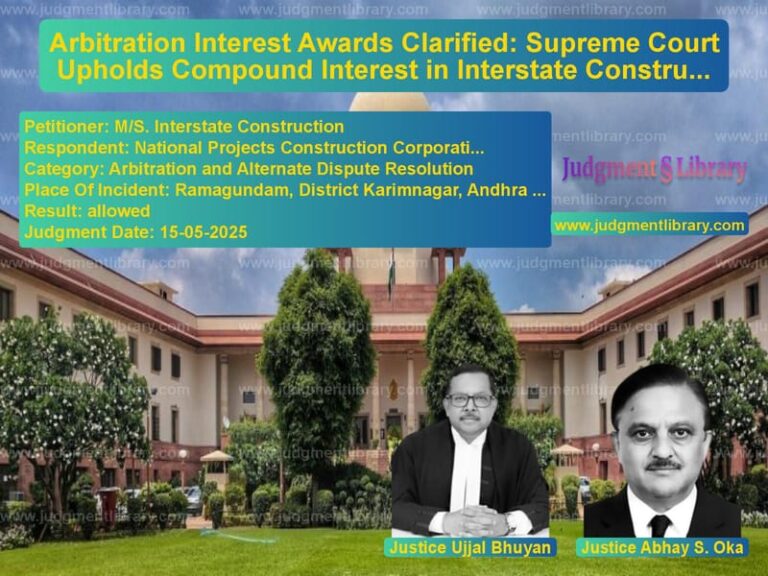Supreme Court Clarifies Cross-Subsidy Surcharge Rules in Electricity Act, Overturns APTEL Judgment
The Supreme Court of India recently delivered a significant judgment in the case of Jaipur Vidyut Vitran Nigam Limited and Ors. versus Rajasthan Textile Mills Association & Anr., addressing the contentious issue of Cross-Subsidy Surcharge (CSS) under the Electricity Act, 2003. The judgment, delivered by Justices Abhay S. Oka and Augustine George Masih on April 29, 2025, overturned the decision of the Appellate Tribunal for Electricity (APTEL) and restored the order of the Rajasthan Electricity Regulatory Commission (State Commission) dated December 1, 2016. The case revolved around the determination of CSS payable by industrial consumers opting for open access to electricity, a mechanism that allows consumers to source power from suppliers other than their local distribution licensee.
The dispute arose when the State Commission, in its order dated December 1, 2016, determined the CSS rates based on the tariff fixed for the financial year 2015-2016. The industrial consumers, represented by the Rajasthan Textile Mills Association, challenged this determination before the APTEL, arguing that the CSS should have been determined simultaneously with the tariff and that the State Commission’s approach led to an unjustified increase in the surcharge. The APTEL sided with the consumers, setting aside the State Commission’s order. However, the Supreme Court found the APTEL’s reasoning flawed and restored the State Commission’s order, clarifying key legal principles regarding the determination of CSS.
The Supreme Court emphasized that the CSS is a statutory charge designed to compensate distribution licensees for the loss of cross-subsidy revenue when consumers opt for open access. The Court noted, “The CSS is in the nature of compensation qua the tariff, which the distribution licensees would have received from the open access consumers but for their availing power from other sources. Hence, the CSS must be based on the applicable retail tariff recoverable during the relevant period.” This observation underscored the compensatory nature of the CSS and its linkage to prevailing tariff rates.
The Court also addressed the argument that the CSS must be determined simultaneously with the tariff. It held that neither the Electricity Act, 2003, nor the Rajasthan Electricity Regulatory Commission (Terms and Conditions for Determination of Tariff) Regulations, 2014, mandate such simultaneity. The Court pointed out that Regulation 90 of the Rajasthan Tariff Regulations, 2014, explicitly bases the CSS on the prevailing tariff rates, which can be determined separately from the tariff itself. The Court stated, “We find no basis for the opinion expressed by the APTEL that determination of the CSS should coincide with the tariff determination.”
The judgment also highlighted the importance of the State Commission’s discretion in determining the CSS. The Court noted that the State Commission’s order dated December 1, 2016, was based on the tariff fixed for 2015-2016, which remained in force until a new tariff order was issued on November 2, 2017. The Court found no fault with this approach, as it aligned with the statutory framework and the compensatory purpose of the CSS. The Court remarked, “The State Commission determined the CSS based on the data and financials provided in the order dated 22nd September 2016. As provided in the said order dated 22nd September 2016, the same was to be in force until there was a fresh tariff determination.”
The Supreme Court’s decision has significant implications for the electricity sector, particularly for distribution licensees and industrial consumers. By clarifying that the CSS need not be determined simultaneously with the tariff and reaffirming its compensatory nature, the judgment provides much-needed legal certainty. It also reinforces the regulatory autonomy of State Commissions in determining surcharges, ensuring that distribution licensees are adequately compensated for the loss of cross-subsidy revenue. The ruling is expected to influence future disputes involving open access and CSS, setting a precedent for similar cases across the country.
Petitioner Name: Jaipur Vidyut Vitran Nigam Limited and Ors..Respondent Name: Rajasthan Textile Mills Association & Anr..Judgment By: Justice Abhay S. Oka, Justice Augustine George Masih.Place Of Incident: Rajasthan.Judgment Date: 29-04-2025.Result: allowed.
Don’t miss out on the full details! Download the complete judgment in PDF format below and gain valuable insights instantly!
Download Judgment: jaipur-vidyut-vitran-vs-rajasthan-textile-mi-supreme-court-of-india-judgment-dated-29-04-2025.pdf
Directly Download Judgment: Directly download this Judgment
See all petitions in Judgment by Abhay S. Oka
See all petitions in Judgment by Augustine George Masih
See all petitions in allowed
See all petitions in supreme court of India judgments April 2025
See all petitions in 2025 judgments
See all posts in Corporate and Commercial Cases Category
See all allowed petitions in Corporate and Commercial Cases Category
See all Dismissed petitions in Corporate and Commercial Cases Category
See all partially allowed petitions in Corporate and Commercial Cases Category


